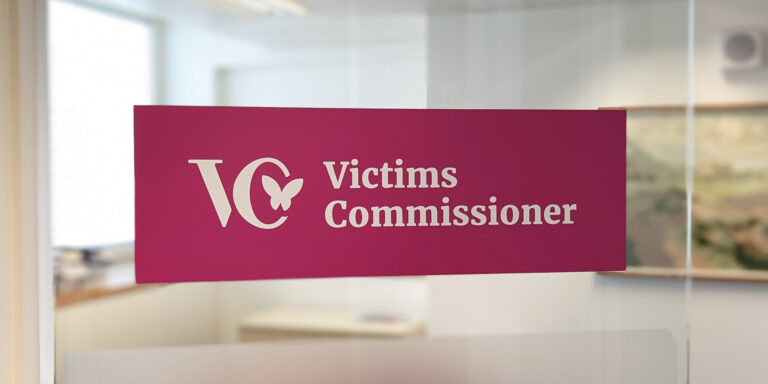Amid funding uncertainty, celebrating the work of independent stalking advocates and other victim services is more important than ever

Marking National Stalking Awareness Week this year, the Victims' Commissioner shines a light on the importance of making specialist support available to stalking victims — and why the work of these and other victim services must not be taken for granted.
Time and again, one message rings loud and clear to me as Victims’ Commissioner: victim services are a lifeline to victims of crime. They offer emotional support, guidance and practical assistance in the darkest of times. For those on the often-difficult road to recovery, they provide a steady hand to hold – offering support, however that journey unfolds.
With a critical government Spending Review looming, this National Stalking Awareness Week is a crucial reminder of what we stand to lose if they are taken for granted. Over the years, we’ve seen real progress in tackling stalking. But if the upcoming Spending Review fails to address these serious funding gaps, we risk that progress unravelling. When these cuts were announced late last year, I called on the government to reverse course and make emergency funding available to keep victim services available and support centres open.
National Stalking Awareness Week is also a crucial moment to shine a light on how these services help stalking victims in particular – and why they are essential in tackling a dangerous crime that is too often misunderstood or minimised.
A pattern of fixated and obsessive behaviour that causes victims fear or distress, stalking is a serious and complex crime. Yet it has historically been poorly understood by police and other bodies, with persistently low conviction rates. Too often, the system fails to spot the signs of stalking, help victims and deliver justice.
That’s why specialist stalking support provision is so essential. For those who choose to report, independent advocates play a crucial role – guiding victims through the criminal justice process and helping them begin to rebuild their lives. These advocates make sure victims understand their rights, receive regular updates on their case, and stay informed throughout.
A quote from one of the committed frontline support workers who contributed to my 2024 report about victim advocates, summarises this really well:
A lot of it is giving victims a language…understanding the system so that when you are ringing the police, you know exactly what you need to say, for them to understand the intricacies of what’s going on for them, to understand stalking…and quite a lot of them said that we’ve helped to build resilience in them. So actually, next time, they might not need to ring us because they know how it all works and they know what they need to do.
Just as importantly, specialist stalking support workers also offer emotional support – a listening ear in times of distress – and help connect victims with healthcare professionals, such as therapists or counsellors, when needed. This holistic support empowers victims to take the next step, seek closure, and start to heal.
Contributing to the same 2024 report by sharing their experiences, one stalking victim described how transformational access to support was for her:
The police only took the case seriously and classed it as stalking when my advocate came on board. I don’t think it would have gone to the CPS without her, even though I was fighting for this with the police before I self-referred.
The evidence is clear. According to Suzy Lamplugh Trust, one in four victims who had access to a dedicated Stalking Advocate secured a conviction – far outperforming the national conviction rate of just one in 1,000. Yet, despite the invaluable service and support they provide, less than 1% of all stalking victims were supported by specialist stalking advocates in the year ending March 2024, according to the organisation’s estimates.
Leaving stalking victims to cope and recover without dedicated specialist support comes at a cost – not only for the individual victim but for society as well. Conviction rates remain worryingly low, and the number of victims withdrawing from the criminal justice process is markedly higher for stalking and harassment (46%) than the average across all recorded crime (29%), according to recent Home Office data. Victims giving up on justice sets a dangerous precedent – one where offenders go unchallenged and both victims and our communities are left less safe.
Stalking Advocates and other support services are vital to improve our response to stalking and ensure perpetrators face justice – doing so, whilst making sure victims feel safer, supported and empowered to rebuild their lives after crime. This National Stalking Awareness Week is a timely reminder of the instrumental role these support services play – and what’s at stake if they are taken for granted.
